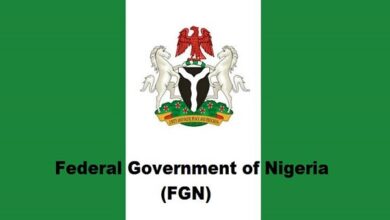Seplat to Ramp Up Production with 13 New Oil Wells, NUPRC Scrutinized Shell Sale

A leading indigenous Nigerian oil and gas exploration and production company, Seplat Energy Plc, has announced plans to ramp up production with 13 new oil wells.
In its unaudited Q1 2024 report, Seplat outlined an ambitious drilling program for the year, aiming to deliver 13 new oil and gas wells across its assets, both operated and non-operated.
This expansion, according to experts, signifies Seplat’s commitment to increasing production capacity.
Seplat has already delivered one well, Ovhor21, from its 2024 drilling program in Q1.
The remaining 12 wells will be a mix of oil (11) and gas (2) production, further emphasizing the company’s focus on expanding capacity.
Beyond the Ovhor21 well, Seplat highlighted the successful completion of two additional wells – Okporhuru-9 and Sapele-37 – that were initiated in late 2023.
These wells exceeded expectations, recording positive results in their primary targets while achieving success in secondary exploration zones within their respective licenses.
According to the report, Seplat remained focused on executing its drilling program, with three more wells – Ovhor-22, Sapele-38, and OBEN KIKB-02 – slated for completion in Q2.
On production timeline, these wells are expected to contribute to increased production volumes later in 2024.
Meanwhile, the Nigerian Upstream Petroleum Regulatory Commission (NUPRC) has said it plans to assess environmental liabilities before allowing Shell PLC to transfer its onshore operations to a local player.
Read more: Finance Minister, Ahmed, says Nigeria to meet Daily Crude Output Quota in Two Weeks
Shell announced the completion of the sale of Shell Petroleum Development Company of Nigeria (SPDC) earlier this year to Renaissance Africa Energy Co. Ltd., a local consortium.
This move is expected to allow Shell concentrate on its Deepwater oil assets and downstream gas activities within the West African nation.
The Shell divestment was not without controversy, with rights groups urging the NUPRC to halt the sale.
Their concerns centred around issues including Shell’s responsibility for cleaning up existing pollution from the transferred infrastructure and doubts about the technical capabilities of the new owner, Renaissance Africa Energy Co. Ltd.
The NUPRC has addressed these concerns by stating that it organized a “due diligence workshop” to scrutinize the Shell divestment.
The NUPRC acknowledged the sale’s significance for the Nigerian oil industry, calling it a “noteworthy step forward.”
However, their statement also revealed that a “due diligence workshop” was held, suggesting that the NUPRC is scrutinizing the deal to ensure that Renaissance Africa Energy Co. Ltd. possesses the necessary financial resources and technical expertise to responsibly manage the acquired assets.
Key considerations include the assessment of environmental liabilities, adherence to regulatory requirements, and industry best practices.
Shell’s onshore operations in Nigeria, which are the subject of the divestment, consist of 15 oil mining leases operated under the JV, according to Shell, and was valued at $2.4 billion.
Also read: Higher Energy Prices Encourage Producers To Increase Drilling
Multiple Exits
Shell is not the only oil giant exiting Nigeria’s onshore scene as multinational majors Eni, Equinor, and Exxon Mobil have also struck deals to divest their assets.
Also, Norway’s Equinor in November 2023, had earlier announced the sale of its entire Nigerian business to Chappal Energies Mauritius Ltd.







